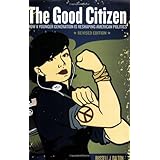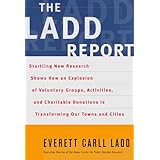
Average Reviews:

(More customer reviews)In "The Good Citizen: How a Younger Generation is Reshaping American Politics," Professor Russell J. Dalton defies the prevailing winds of the political establishment. Responding to widespread and bitterly incisive criticisms of young people on the basis of their supposed lack of political engagement, Dalton throws down the proverbial gauntlet and challenges the conclusions of his peers, championing the cause of American youth in the process. According to political pundits, members of Generations X the Millennial Generation, unflatteringly branded the "doofus" generations, are apathetic, cynical, uninformed about political issues, and less likely to participate in the political process than their predecessors, problems which many assert is engendering an erosion of positive democratic values in the United States. Not so, protests Dalton. In contrast to the alarmist predictions of doom and gloom which have taken root in the public consciousness, Dalton paints a different portrait of American youth (as well as youth in other advanced democracies) as perhaps even more engaged and politically active than their predecessors, but in non-electoral endeavors. An appropriate subtitle to this book, Dalton suggests, is, "The good news is...the bad news is wrong," and he sets out to demonstrate the positive qualities of the most recent generations, qualities which are often overlooked by more skeptical analysts.
Dalton makes a convincing case that the harsh and malicious attacks on the alleged political disengagement of the young are simplistic and misguided. Compiling an impressive amount of statistical data measuring political trends, changes in cultural perceptions, and increased participation in non-electoral political activities from the 1950s to the present day, he presents the argument that neither democracy nor citizenship are weakening; rather, social and cultural changes are producing a shift in citizenship norms from traditional "duty-based citizenship" to what Dalton terms "engaged citizenship." Whereas citizen duty stresses priorities of social order, deference to the ruling bodies, feelings of patriotism, respect for elected officials, and voting, engaged citizenship emphasizes non-electoral political activism (such as protests or boycotts), a more assertive and non-deferential view of one's place in the electorate, skepticism of government officials, and social citizenship, which encompasses solidarity and deep concern for other people both at home and abroad.
This norm shift, Dalton explains, can be attributed to a wide array of social changes over the past half-century (greater integration of minorities and women into society, improved living standards, a more educated populace, the advent of the creative class and so-called "knowledge workers" into the workforce, advances in technology), and stresses the benefits of engaged citizenship as opposed to duty-based citizenship. Engaged citizens are more politically tolerant, feel a moral or ethical concern for the well-being of others, tend to participate more often in non-electoral political activism, and are also more likely to support government programs benefitting the impoverished and less-fortunate. Citizens who are more critical and less deferential toward political authority are also more likely to engage in protests and activism in an attempt to change government policies and raise awareness for their core beliefs. While Dalton does mention possible drawbacks to an electorate comprised entirely of engaged citizens, his praise of the young is as overwhelming as the evidence he presents that the United States is becoming more tolerant, better educated, and more supportive of democratic values. Even the disheartening trend that young people are not active in voting, the most fundamental castigation of the young that critics use as proof of a declining sense of civic duty, may be overstated, as illustrated by the prodigious success of the Obama presidential campaign in effectively engaging and increasing the turnout of young voters. Dalton states that most criticisms of young voters arise from an idealized perception of American culture of the past and a stubborn resistance to change. That we as a society could or should try to reverse these patterns of changing citizenship norms are both unreasonable and unrealistic, and thus we should embrace the rise of engaged citizenship and attempt to improve American democacy based on the trends produced by social modernization, not the outdated norms of the past. Dalton's arguments are both lucid and compelling, and they should at the very least open any reader's mind to the legitimacy of engaged citizenship and the political activism of today's youth.
My only real complaint with "The Good Citizen" is that, while it is both informative and easy to comprehend, Dalton tends to repeat information ad nauseum throughout the book (he seems to define both "duty-based citizenship" and "engaged citizenship" at least once per chapter), and so the book is somewhat of an exhausting read (imagine a carpenter continually hammering at a nail that is already firmly in place). Otherwise, this is an excellent book putting forth an assessment contradicting the conventional view of "politically disengaged youth." Since true insight is attained only by hearing and evaluating both sides of the story, if you have been inundated by disparaging information about young people and their lack of redeeming value, I would emphatically recommend purchasing this for the "other side of the story."
Click Here to see more reviews about:
The Good Citizen: How A Younger Generation Is Reshaping American Politics, Revised EditionBefore the Iowa caucuses, nearly all political analysts believed that the Obama campaign strategy of targeting young Americans was doomed to failure. His election win proved the detractors wrong. In a new epilogue of The Good Citizen, focusing on the 2008 presidential election, Russell Dalton answers questions that are sure to resonate with your readers and provide great fodder for lively discussion:
Should we be surprised by Obama's appeal to the young engaged citizens?
What were the sources of this appeal?
Who voted for Obama in November?
What are the potential long-term implications of Obama's mobilization of young Americans
ABOUT THE GOOD CITIZEN
There has been a growing chorus of political analysts with doomsday predictions of an American public that is uncivil, disengaged, and alienated. And it s only getting worse with a younger generation of Americans who do not see the value in voting.The good news is that the bad news is wrong.Russell Dalton uses a new set of national public opinion surveys to show how Americans are changing their views on what good citizenship means. It s not about recreating the halcyon politics of a generation ago, but recognition that new patterns of citizenship call for new processes and new institutions that reflect the values of the contemporary American public. Trends in participation, tolerance, and policy priorities reflect a younger generation that is more engaged, more tolerant, and more supportive of social justice. The Good Citizen shows how a younger generation is creating new norms of citizenship that are leading to a renaissance of democratic participation. An important comparative chapter in the book showcases cross-national comparisons that further demonstrate the vitality of American democracy.This book will reshape how we think about the American public, American youth, and the prospects for contemporary democracy.
 Get 22% OFF
Get 22% OFF
Click here for more information about The Good Citizen: How A Younger Generation Is Reshaping American Politics, Revised Edition





